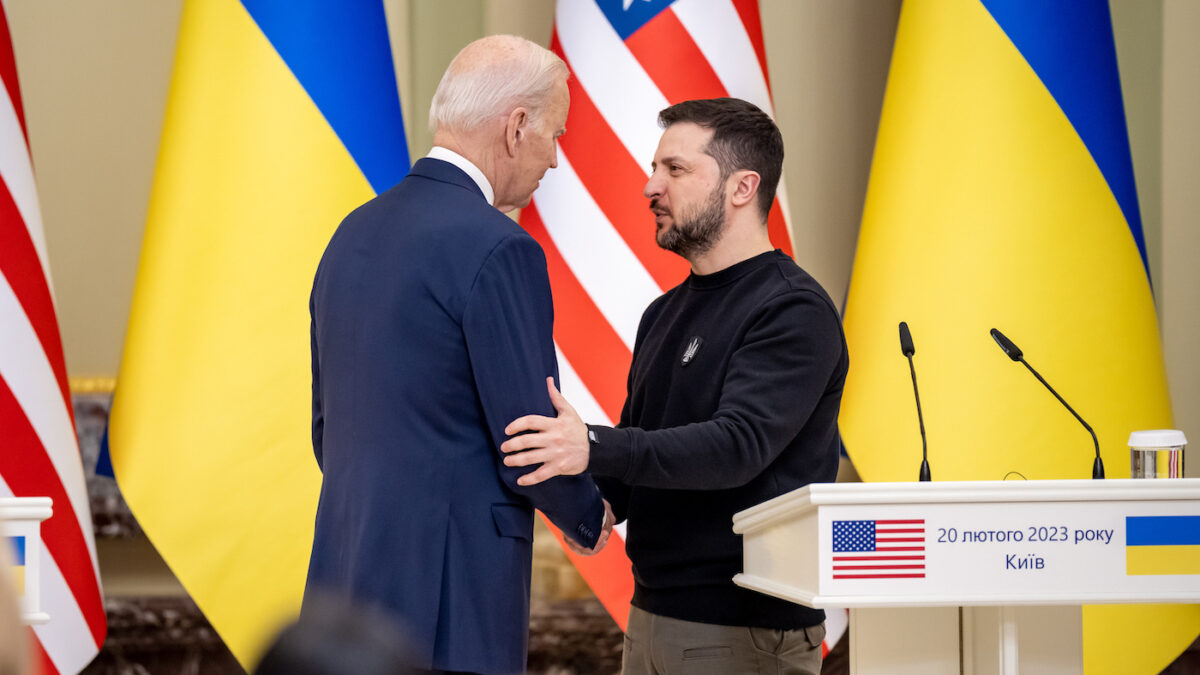DAVID SACKS

With each passing day, it’s becoming clear that the Ukrainian counteroffensive is failing to achieve any of its originally stated objectives. Recall: The Biden administration’s bet was that the counteroffensive would roll back Russian territorial gains, cut the land bridge to Crimea, and force Russia to the negotiating table. That is almost certainly not going to happen. On the contrary, a stalemate is more likely, or even that Russia will take more territory and win the war, as John Mearsheimer has predicted.
What are President Biden’s options now? Either escalate or admit defeat. In preparation for NATO’s Vilnius Summit, Secretary of State Antony Blinken has been floating a proposal to give “Israel status” to Ukraine. This means multi-year security guarantees including weapons, ammunition, and money that would continue even if Biden loses the next election.
This is not what the American people signed up for. Many Americans supported the $100-plus billion in appropriations for Ukraine, believing it was a one-time deal to reverse Russian territorial gains. If they had been told it was the basis for an annual appropriation in a new Forever War, they would have preferred an alternative, especially if they had known that one was available.
The Peace that Could Have Been
New evidence is emerging that a peace deal was achievable at the beginning of the war. At a recent meeting with the African delegation, Russian President Vladimir Putin reportedly showed the draft of an outline or preliminary agreement signed by the Ukrainian delegation in Istanbul in early 2022. It allegedly provided that Russia would pull back to pre-war lines if Ukraine would agree not to join NATO (but Ukraine could receive security guarantees from the West).
This document has not been publicly released yet, but no one seriously contests that it exists. The only dispute is over what happened subsequently; Ukraine contends the deal fell apart. However, the availability of a deal based on Ukrainian neutrality is consistent with previous comments from Naftali Bennett, who said among other things that a deal was attainable but rejected by the West.
Why would the West do this? Ukrainska Pravda (UP), a pro-Ukraine publication, reported in May 2022:
As soon as the Ukrainian negotiators and Abramovich/Medinsky [the Russian negotiators], following the outcome of Istanbul, had agreed on the structure of a future possible agreement in general terms, UK Prime Minister Boris Johnson appeared in Kyiv almost without warning. ‘Johnson brought two simple messages to Kyiv. The first is that Putin is a war criminal; he should be pressured, not negotiated with. And the second is that even if Ukraine is ready to sign some agreements on guarantees with Putin, they are not. We can sign (an agreement) with you (Ukraine), but not with him. Anyway, he will screw everyone over’, is how one of Zelenskyy’s close associates summed up the essence of Johnson’s visit.”
Johnson (who must have been speaking not just for himself but for the Western alliance) wanted to pressure Putin, not make peace, and promised new weapons systems if Ukraine would keep fighting.
At the time of UP’s article, Ukraine appeared to be doing well, so UP portrayed Zelensky’s decision to accept Johnson’s offer as a smart gamble. Now, in hindsight, it looks like a disaster.
Afghanistan Redux?
I know some of you may find it hard to believe that the realities on the ground are so at odds with the corporate media’s coverage. But it’s worth recalling that the American public was assured for two decades that we were winning in Afghanistan. All of that reporting was revealed as a pack of lies when the Afghan army that we were supposedly “standing up” collapsed within a matter of weeks. At that point, the media stopped reporting on Afghanistan, just like it had stopped reporting on Iraq, instead of holding anyone accountable.
Unfortunately, it looks like we’re headed for a similar kind of outcome in Ukraine. The only question is when, and how long Biden will be able to perpetuate a proxy war of choice that could have easily been avoided.
No comments:
Post a Comment